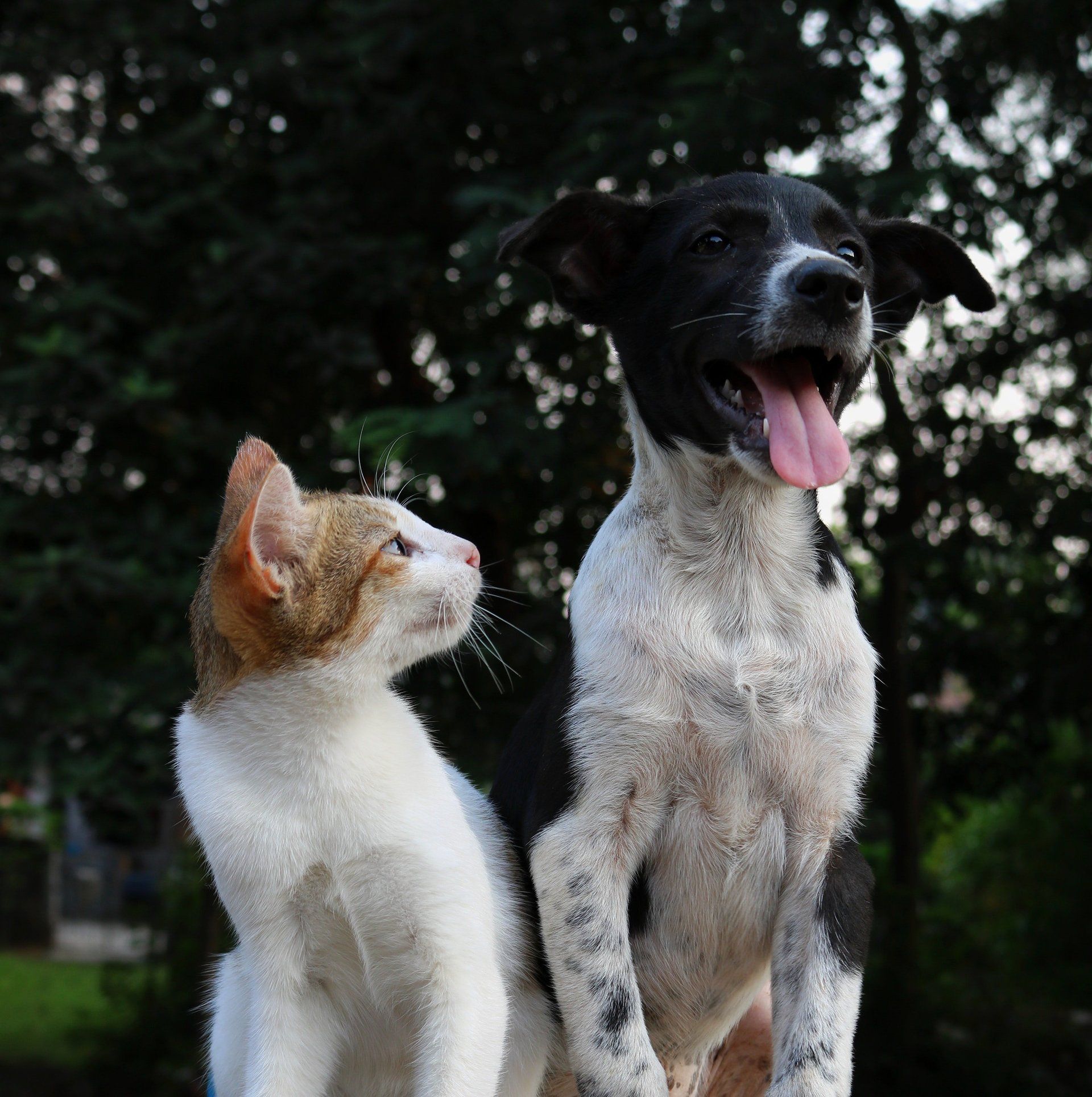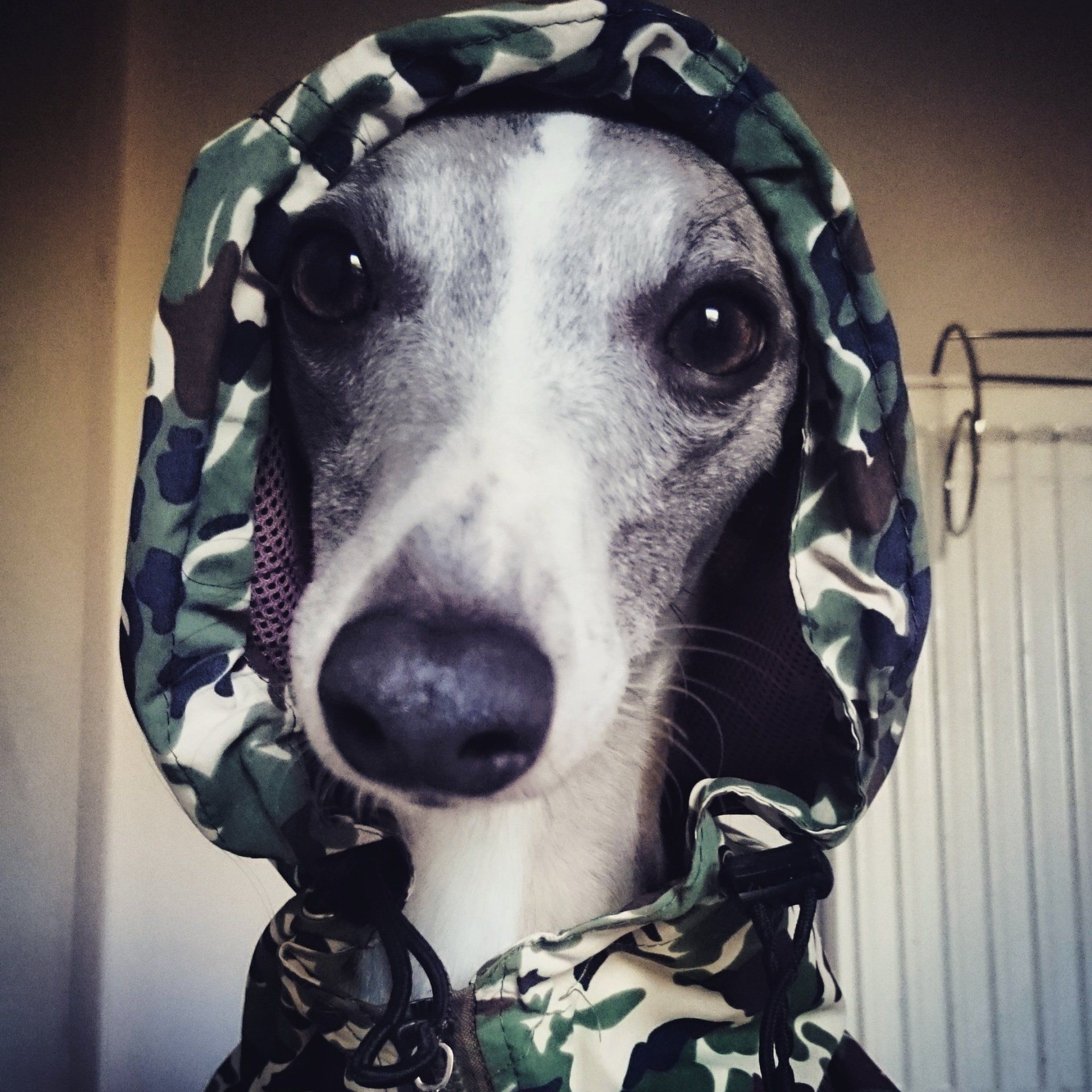Visit Our Online Shop
Follow Us
Bilton Veterinary Centre
259 Bilton Road
Rugby
Warwickshire
CV22 7EQ
Reception: 01788 812650
Repeat Prescriptions: 01788 817462
In-Patients: 01788 813498
GETTING A NEW PET
Thinking about adding to the family? Here are some top tips...
Thinking about getting a new pet is a big responsibility and a lot of thought should be given before making any decisions. You should ask yourself the following questions:
Getting a new pet can be an important decision for any family. We can give you advice on which breed/species may be suitable.
A lot of information about getting a new pet is available. The vets and nurses are always willing to discuss with you any queries you have about keeping animals, and the library is full of books about choosing and looking after animals - well worth a visit. Forewarned and prepared is forearmed and you will find the whole process of getting a new pet much more enjoyable if you are informed.
- Am I going to be able to give it enough attention during the day or will it be spending too long alone to be properly looked after.
- Have I got suitable facilities for the animal - are there going to be areas where it can “wee” and “poo”? Is the garden safe and secure? Are there other animals in the house (eg cats) that may cause a problem? Is there somewhere suitable for it to sleep and feel safe? Have I got large enough living space for it?
- Are my surroundings suitable - for example keeping a dog is difficult if you do not own a garden. Keeping a cat may be difficult if you live on a main road.
- Can I afford to look after the animal properly? Keeping any animal is expensive - some more than others.
- Are you able to afford the food, vets fees and other miscellaneous costs that are necessary for a pet. Often the bigger the animal is, the more expensive it can be - they usually require large amounts of food, and if needing treatment will need larger quantities of drugs.
- Who is going to look after the animal? Will it be one person's responsibility or will it be shared. Children especially need to understand the responsibility of owning and looking after a pet animal.
- Are there suitable arrangements/facilities available to look after the animal if you are not going to be at home e.g. kennelling when on holiday.
- How much do you know about looking after specific species? For example, if you want to get a pet snake, are you sure you are confident about how to look after it carefully - who will look after it when you are away?
- What are the disease/illness predispositions for different species/breeds of pets? Did you know that in dogs, certain conditions/problems are becoming almost inevitable with certain breeds?
Getting a new pet can be an important decision for any family. We can give you advice on which breed/species may be suitable.
A lot of information about getting a new pet is available. The vets and nurses are always willing to discuss with you any queries you have about keeping animals, and the library is full of books about choosing and looking after animals - well worth a visit. Forewarned and prepared is forearmed and you will find the whole process of getting a new pet much more enjoyable if you are informed.

Do I want a puppy/kitten or an older animal?
Puppies and kittens are hard work. There are no two ways about it. The benefit of getting a young animal is that you effectively start with a "blank slate" and therefore can allow him or her to develop a suitable personality from a young age. However to get to this stage they require a lot of attention, patience and time. When getting a young animal it is important to try and see the environment that it has spent its time growing up in. For example if a puppy has been kept in a corner of a shed all its life with little human contact - it will come as no surprise that it will be nervous of people. If a dog has grown up never seeing a cat before - don't be surprised when it wants to investigate your family cat when it gets home! It is also advisable to try and see the parents as well. This will give you a certain idea as to what your young pet will look like when its grown up - young puppies tend to look very similar. There are big differences between a Yorkshire terrier and a Great Dane!
Getting an older or rescue animal should always be considered when wanting to obtain a new pet - and everything in the section above applies here as well. Unfortunately there are always numerous animals across the country that are homeless and these often make very good and loving pets. It is not true that rescue dogs or cats are "easier" than getting a puppy or kitten, but there are certain advantages.
Most rescue centres have a system by which they will assess if you are suitable for the animal. This is not always the case! For example a dog afraid of men would not be suitable to be re-homed as a football team mascot! Also most rescue animals actually don’t come with "issues" and the enjoyment and satisfaction found from re-homing an animal is often tremendous and usually mutual!
What breed of animal should I get?
If you have decided on a species (ie dog, cat rabbit etc) is also very important to consider what breed you want to get. Each and every breed is different and often comes with its own set of pro's and con's. When choosing an animal you should think about the characteristics that make up the breed. (Although most of below applies to dogs, the same applies to all species.)
Getting a new pet can be a big step for a family, and getting the right advice can help.
So far, all you've talked about is dogs and cats. What about other pets?
Rabbits are now the third most common pet in the United Kingdom and this figure is set to rise over the next few years. Guinea-pigs, hamsters, rats and chinchillas are also very popular - to name but a few. These "small-furries", birds and the reptiles are often called the Exotic Pets. Everything said so far in this section applies to these too - the responsibility of looking after "Exotic" pets is just the same as dogs and cats.
Because they are small and often because they are children's pets it is important to be extra careful when choosing and looking after these animals. Before choosing an "exotic" pet you need to make sure that you know enough about their requirements and husbandry. You will need to know what type of housing they have - is the heating and humidity suitable? What food should they have? Do they need special dietary additives? What about unusual requirements - for example did you know that chinchillas need to bathe in dust regularly to maintain their coat?
Again, have you got the time to give these animals the attention they deserve. It is no good having a rabbit that spends all its time in a hutch down the bottom of the garden - that just has food given to it every day. These animals require daily handling and careful examination on a regular basis, as illness and disease is often a lot more subtle.
More Information
Every person’s individual situation and circumstances are different. The vets and nurses are always more than happy to discuss any queries that you may have when choosing a pet. We will also give you a very truthful opinion on breeds as well as the inherent health problem with certain breeds are becoming much more severe.
Puppies and kittens are hard work. There are no two ways about it. The benefit of getting a young animal is that you effectively start with a "blank slate" and therefore can allow him or her to develop a suitable personality from a young age. However to get to this stage they require a lot of attention, patience and time. When getting a young animal it is important to try and see the environment that it has spent its time growing up in. For example if a puppy has been kept in a corner of a shed all its life with little human contact - it will come as no surprise that it will be nervous of people. If a dog has grown up never seeing a cat before - don't be surprised when it wants to investigate your family cat when it gets home! It is also advisable to try and see the parents as well. This will give you a certain idea as to what your young pet will look like when its grown up - young puppies tend to look very similar. There are big differences between a Yorkshire terrier and a Great Dane!
Getting an older or rescue animal should always be considered when wanting to obtain a new pet - and everything in the section above applies here as well. Unfortunately there are always numerous animals across the country that are homeless and these often make very good and loving pets. It is not true that rescue dogs or cats are "easier" than getting a puppy or kitten, but there are certain advantages.
- They are often already house trained.
- They are often trained to a certain extent.
- They are often more accustomed to being left alone for certain lengths of time.
- They are often fully grown and developed - what you see is what you get.
- You can view and visit before you decide.
Most rescue centres have a system by which they will assess if you are suitable for the animal. This is not always the case! For example a dog afraid of men would not be suitable to be re-homed as a football team mascot! Also most rescue animals actually don’t come with "issues" and the enjoyment and satisfaction found from re-homing an animal is often tremendous and usually mutual!
If you have decided on a species (ie dog, cat rabbit etc) is also very important to consider what breed you want to get. Each and every breed is different and often comes with its own set of pro's and con's. When choosing an animal you should think about the characteristics that make up the breed. (Although most of below applies to dogs, the same applies to all species.)
- How big will it grow? Have I got the space for a large animal or would a smaller one be more suitable.
- What will I want to do with the pet? A Yorkie would not do well as an outdoor dog, nor would you expect a British Bull dog to climb Snowdonia with you.
- What is the breed originally designed for? Don't be surprised when your Labrador retriever retrieves things. Don't be surprised that your greyhound chases things. Don't be surprised if your German Shepherd is protective and guarding.
- What inherited conditions does the breed have? Purebred pedigrees tend to have more inherited conditions than the average Heinz 57's. Are you aware of your chosen breeds inherited conditions so you know what to look out for?
- Do I want to show it? Does it meet the correct criteria for showing rules - e.g. is it entire or has it been castrated
- How will I manage it on a day to day basis and in the future? For example you may find a long haired cat difficult to groom daily if you are on your own. Will you still be able to take a big dog out for long walks in 10 years time or would a smaller dog be more suitable.
Getting a new pet can be a big step for a family, and getting the right advice can help.
So far, all you've talked about is dogs and cats. What about other pets?
Rabbits are now the third most common pet in the United Kingdom and this figure is set to rise over the next few years. Guinea-pigs, hamsters, rats and chinchillas are also very popular - to name but a few. These "small-furries", birds and the reptiles are often called the Exotic Pets. Everything said so far in this section applies to these too - the responsibility of looking after "Exotic" pets is just the same as dogs and cats.
Because they are small and often because they are children's pets it is important to be extra careful when choosing and looking after these animals. Before choosing an "exotic" pet you need to make sure that you know enough about their requirements and husbandry. You will need to know what type of housing they have - is the heating and humidity suitable? What food should they have? Do they need special dietary additives? What about unusual requirements - for example did you know that chinchillas need to bathe in dust regularly to maintain their coat?
Again, have you got the time to give these animals the attention they deserve. It is no good having a rabbit that spends all its time in a hutch down the bottom of the garden - that just has food given to it every day. These animals require daily handling and careful examination on a regular basis, as illness and disease is often a lot more subtle.
More Information
Every person’s individual situation and circumstances are different. The vets and nurses are always more than happy to discuss any queries that you may have when choosing a pet. We will also give you a very truthful opinion on breeds as well as the inherent health problem with certain breeds are becoming much more severe.


Quick Links
Contact Us
Bilton Veterinary Centre
259 BIlton Road
Rugby
Warwickshire CV22 7EQ
Tel: 01788 812650
email: enquiries@biltonvets.co.uk
Opening Hours
- Monday
- -
- Tuesday
- -
- Wednesday
- - -
- Thursday
- -
- Friday
- -
- Saturday
- -
- Sunday
- Closed